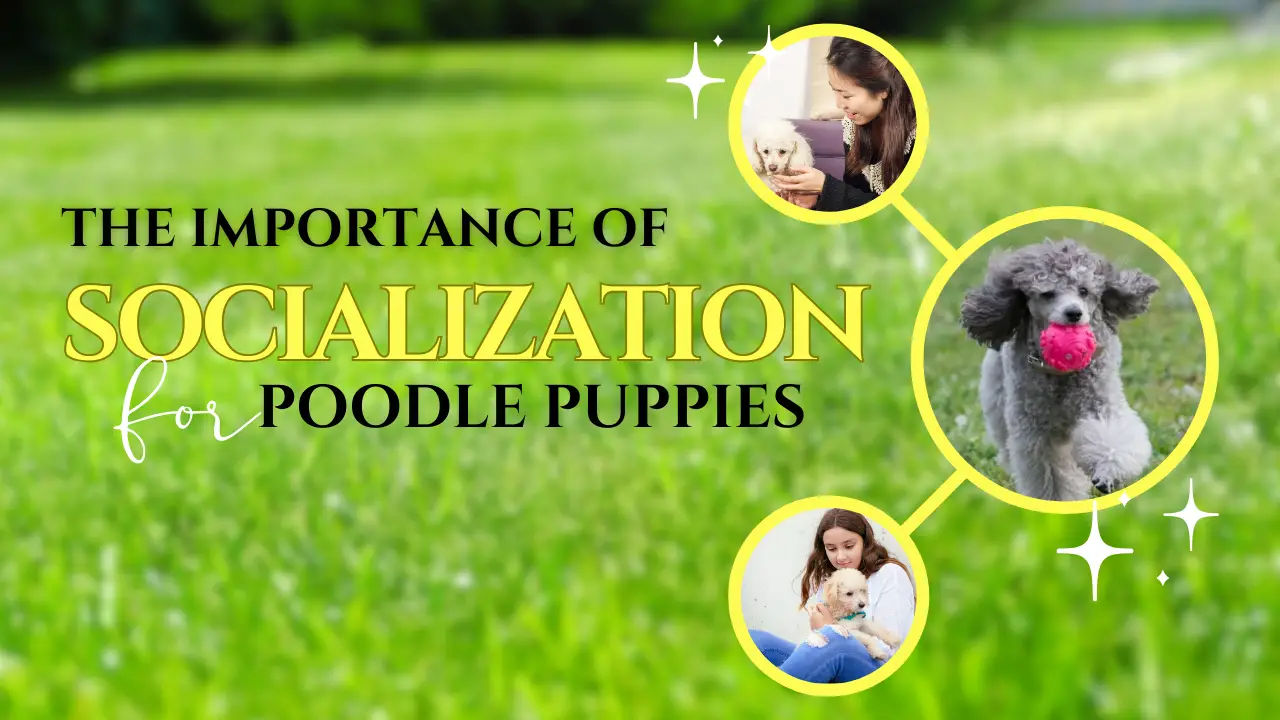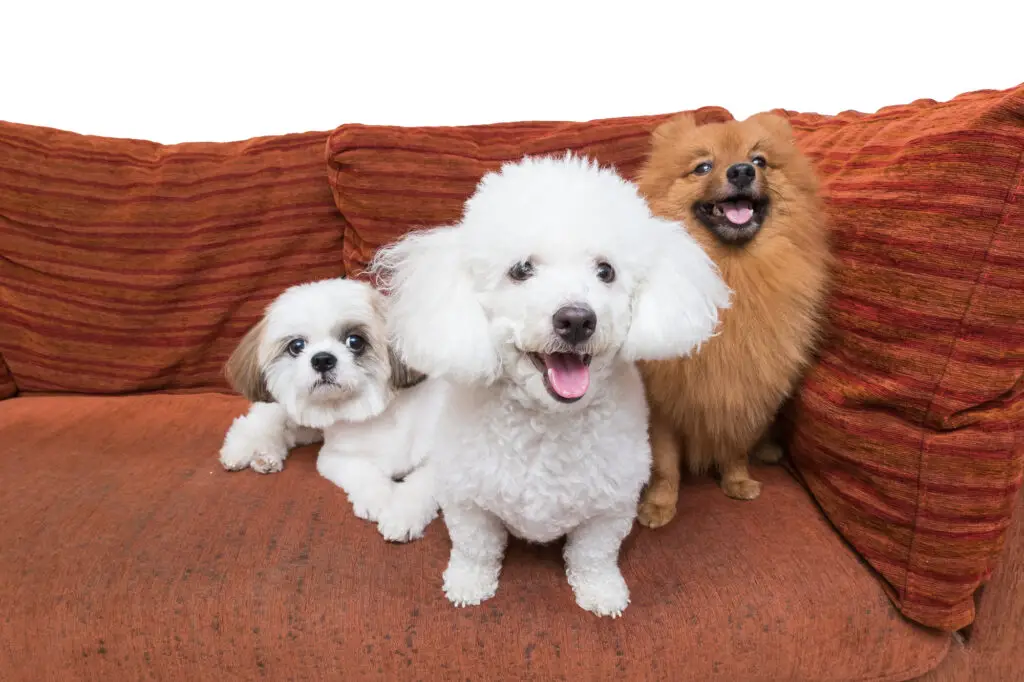As a proud poodle owner and founder of PoodleHQ.com, I am passionate about sharing valuable information on raising happy and well-rounded poodle puppies. Today, I want to discuss the importance of socialization for poodle puppies.
Socialization plays a crucial role in shaping your puppy’s behavior and overall well-being. So, let’s dive into why socialization is so important and how you can ensure your poodle puppy gets the best start in life.

What Will You Learn? 👇
Why is Socialization Important for Poodle Puppies?
Socialization is the process of exposing your poodle puppy to various people, animals, environments, and experiences in a positive and controlled manner. It helps them develop the necessary social skills and confidence to navigate the world around them. Here are some key reasons why socialization is crucial for your poodle puppy:
- Behavioral Development: Proper socialization during the critical early weeks and months of a poodle puppy’s life can significantly impact their future behavior. It helps prevent fear, anxiety, and aggression issues by teaching them how to effectively communicate and interact with other dogs and humans.
- Reduced Anxiety: Socialized puppies are generally more confident and less anxious in unfamiliar situations. By gradually exposing them to different environments and stimuli, you can help build their resilience and adaptability, reducing the likelihood of fear-based reactions later in life.
- Improved Training: Well-socialized poodle puppies tend to be more receptive to training. They have a better understanding of boundaries, are more likely to follow commands, and are less prone to developing undesirable behaviors.
- Enhanced Bonding: Socialization activities provide excellent opportunities for you and your poodle puppy to bond. By experiencing new things together, you build a foundation of trust and strengthen your relationship, making training and everyday life more enjoyable for both of you.
- Preventing Behavioral Issues: Lack of socialization can lead to behavioral problems such as excessive barking, separation anxiety, and aggression. By properly socializing your poodle puppy, you can minimize the risk of these issues arising in the future.
How to Socialize Your Poodle Puppy
Now that we understand the importance of socialization, let’s explore some practical tips to ensure your poodle puppy receives the best socialization experience:

Read our Smart Poodles - Smart Tricks eBook for only $2.99
Dive into a treasure trove of engaging tricks and tips designed specifically for your poodle!
- Start Early: Begin socializing your poodle puppy as soon as you bring them home, ideally between 3 to 14 weeks of age when they are most receptive to new experiences.
- Positive Experiences: Make every socialization experience positive and rewarding for your puppy. Use treats, praise, and play to reinforce good behavior and create positive associations.
- Gradual Exposure: Introduce your puppy to new stimuli in a gradual and controlled manner. Start with low-stress environments, such as your home, and gradually progress to busier places with more distractions.
- Varied Environments: Expose your poodle puppy to a wide range of environments, including parks, streets, pet-friendly stores, and different types of surfaces (grass, sand, pavement). This helps them become comfortable and adaptable in various settings.
- Meeting New People and Animals: Allow your puppy to meet and interact with different people, including children, men, women, and individuals of diverse appearances. Similarly, provide opportunities for positive interactions with well-behaved dogs of different breeds and sizes.
- Positive Reinforcement: Reward your puppy for calm and friendly behavior during socialization experiences. Encourage them to approach new people and animals at their own pace, rewarding them for positive interactions.
- Ongoing Socialization: Socialization is a lifelong process. Continue exposing your poodle to new experiences, environments, and social interactions even after the critical socialization period ends. Regular outings, playdates, and training classes can help reinforce their social skills.

Common Socialization Challenges and How to Overcome Them
While socializing your poodle puppy, you may encounter some challenges along the way. Here are a few common ones and how to overcome them:
- Fearful Reactions: If your puppy displays fear or anxiety during socialization, don’t force them into uncomfortable situations. Instead, take a step back and gradually reintroduce the stimuli at a slower pace, ensuring positive associations and rewards.
- Unfriendly Encounters: In case your puppy has a negative encounter with another dog, human, or experience, focus on providing reassurance and redirecting their attention to positive interactions. Seek professional guidance if needed to address any specific issues.
- Health Considerations: Remember to prioritize your puppy’s health during socialization. Ensure they have received their vaccinations and are protected against contagious diseases before exposing them to public areas or other dogs.
Get Started with Socialization Today!
Now that you understand the importance of socialization and how to tackle common challenges, it’s time to embark on this exciting journey with your poodle puppy. Remember, socialization is a lifelong process, so make it a priority to continue exposing your poodle to new experiences and environments throughout their life.
If you have any questions or want to share your own experiences with socializing your poodle puppy, please leave a comment below. I would love to hear from you and offer any additional guidance or support. Happy socializing!
Leave a comment below and share your experiences with socializing your poodle puppy. Let’s learn and grow together!
Marko is the founder and author at PoodleHQ, where he blends profound expertise with formal training in Animal Behavior and Canine Genetics. With multiple generations of poodles under his care, he’s a breed connoisseur, honored with the Canine Care Excellence Award and lauded by the International Pet Enthusiasts Association.

